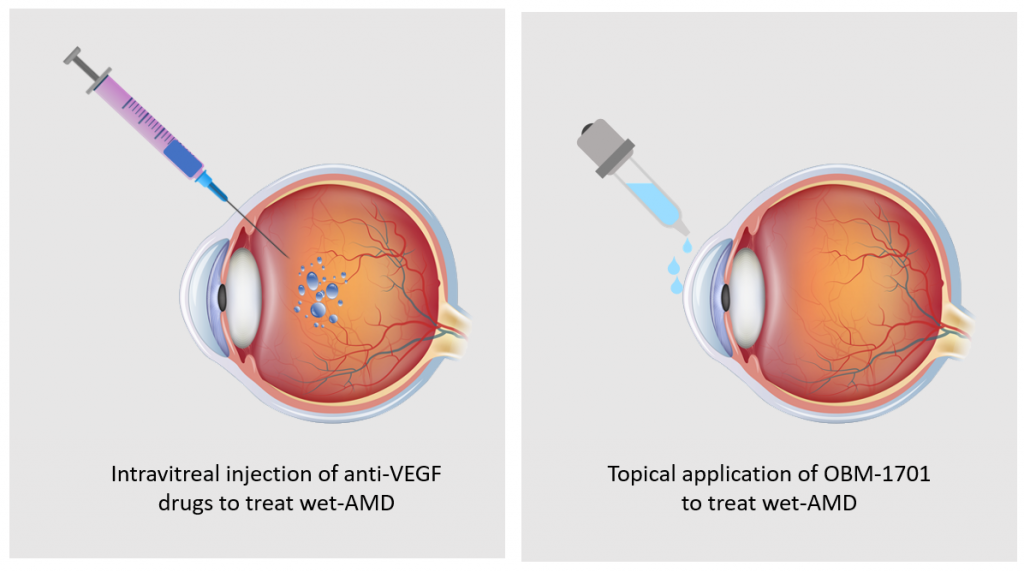
THE OPPORTUNITY
According to the World Health Organisation (WHO), around 196 million people were affected by age-related macular degeneration (AMD) globally in 2020, including over 10.4 million moderate-to-severe vision impairment cases. Moreover, the United Nations Department of Economic and Social Affairs data showed that the population aged 65 years and above was around 727 million in 2020. By the end of 2050, the geriatric population will be approximately 2 billion.
Currently, the market is dominated by two anti-VEGFs drugs – Lucentis (Ranibizumab) and Eylea (Aflibercept), with global reported sales in 2021 of US$3.64bn and US$9.38bn respectively. These drugs require repetitive and inconvenient intraocular injections, which potentially increases the burden and results in non-adherence to treatment.
In a market of this scale, the opportunity and competitive advantage for Oculus is twofold: 1. The potential to reduce the frequency of current intravitreal therapies and 2. As a low molecule weight peptide, the drug can be delivered topically by the patient at home compared to the current invasive injection and requirement for clinical administration.
Our Approach and Tech
- OBM-1701 is a synthetic peptide analogue and results from experiments show OBM-1701 inhibits vessel outgrowth in the rat aortic ring assay, an angiogenesis model based on organ culture;
- By subconjunctival injection and the topical application with eye drop administration experiment, OBM-1701 has demonstrated its efficacy by effectively exhibiting its antiangiogenic activity and positive pharmacological effects on laser-induced choroidal neovascularization (CNV) lesions in wAMD animal model (FIGURE 1) ; and
- OBM-1701 has been successfully synthsised by the OBM’s CMO partner and its purity is 99.5% (by HPLC) has been obtained. Process for larger-scale manufacturing and a CMC, Chemistry, manufacturing and Controls, documentation can be built and prepared when required.


